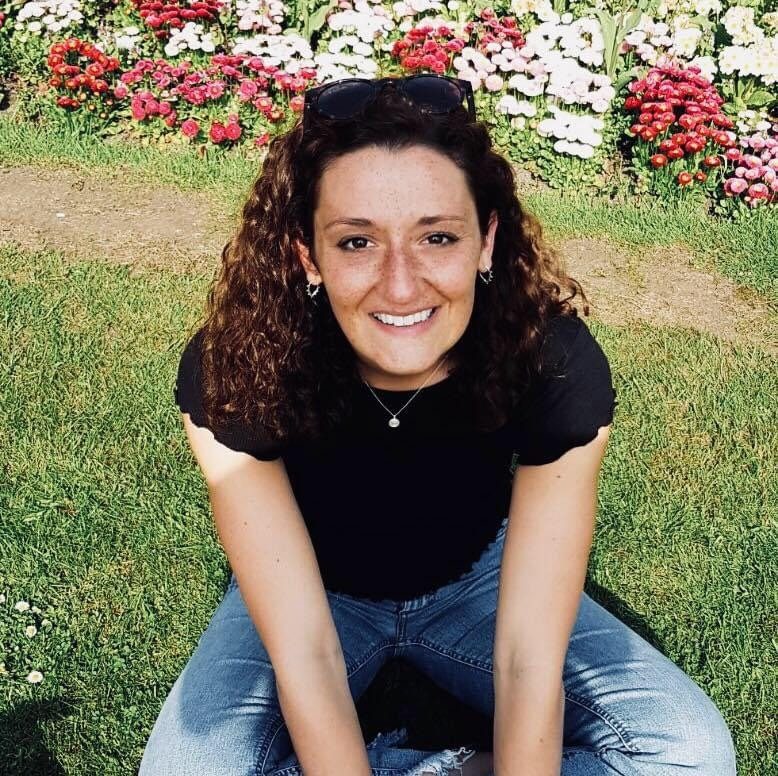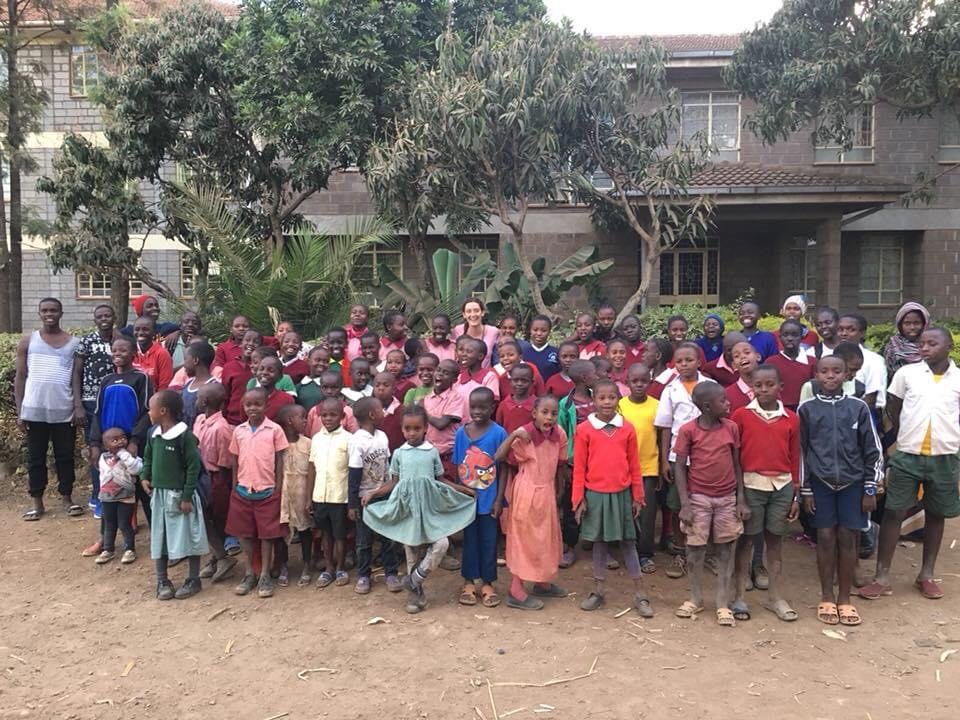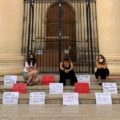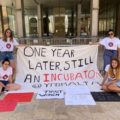
“Listen, but don’t be afraid to do something that you are passionate about just because it deviates from “the norm”. If you follow your internal compass, life has a funny way of working out” – Laura Paris
Laura Paris recently collaborated with Break the Taboo and Young Progressive Beings to put together a collection of women’s abortion experiences called Dear Decision Makers in the hope of persuading policy makers to listen to women and create debate around Malta’s total abortion ban.
Wham caught up with Laura Paris to find out what drives this ambitious young dynamic woman who works as a disease control specialist in humanitarian emergencies and who is also passionate about women’s rights.
So Laura tell us more about yourself and your current job what does a disease control specialist do exactly in humanitarian emergencies and how did you end up in this job? Did Covid effect your work and can you work remotely?
I have always had a passion for the biological sciences which has now matured into a more specific desire to contribute towards the global fight against infectious disease and improvement of international health. This choice has been steered by my experiences working with underprivileged communities in different parts of the world, where I have witnessed first-hand the true devastation caused by communicable diseases, particularly in resource limited settings.
I am currently working for an NGO called The Mentor Initiative whose mandate is to reduce deaths and suffering from tropical diseases in countries facing humanitarian crisis (e.g. Syria, South Sudan, CAR…). At the moment I am based at the headquarters in London and provide support to the South Sudan team, where my tasks vary from writing grant applications and research proposals to helping design control programmes for tropical diseases like malaria and leishmaniasis in settings where resources are limited.
Covid made operationalisation and roll out of our programmes very difficult, restricting movement and travel, inflating local food prices and amplifying poverty, which in turn caused an increase in violence and unrest in countries that were already very unstable. I am currently waiting for travel restrictions to be lifted in order to travel to South Sudan and relieve some of our staff that have been unable to return for longer than anticipated. However, currently, I am working remotely.
I know you also do a lot of humanitarian work with children in Kenya – can you tell us more about how this came about, am I right to say you have actually also set up an NGO there?
I first travelled to Kenya when I was 18 to do some work for a missionary group, where I very quickly became attached to the community in which I was working. I returned to the same community the following year and, together with a local missionary, set up a programme supporting child education and livelihood. This is now a registered NGO called “Sponsor My Future”. I’ve been working with this community for a number of years now, and it has been amazing to watch these children grow and thrive, we even have a couple of University graduates!
If you want more information on this initiative please visit our facebook page or https://sponsormyfuture.org/

I’m a firm believer in the importance of role models – especially female role models. Growing up did you have any female role models or women you really admired?
I wouldn’t say that I had a single role model in particular growing up; however, I was always exposed to strong and hard-working women from a young age. My great grandmother, Anne Agius Ferrante, a single mother at the age of 19 later became the first female MP for the Partit Nazzjonalista. My mother, a business-owner in a male-dominated space, showed me that it is possible to have both a successful career and a family. My grandmother, well-known for speaking her mind and standing up for what she believes in, has been a continuous source of inspiration and support throughout my life. Finally, Sister Celine – the missionary nun with whom I initially founded Sponsor My Future taught me the value of kindness and the importance of standing up for poorer communities and most marginalised members of society. I would say that, collectively, these are the most inspirational women in my life.
Where did you get your passion for women’s health and women’s right from – was there a situation that triggered this passion or maybe a particular person who inspired you?
Through my experiences working in a number of different countries (both developed and under-developed) it is clear that in so many places around the world, including Malta, patriarchal practices are still dominant. Women and girls are disproportionately affected by poverty and sometimes have little or no say in the decisions which affect their lives. This power imbalance also makes women more vulnerable to sexual and physical violence, which heavily impacts health, economic status and overall well-being.
Malta is often idealised to depict an entirely safe environment, where everyone is equal and sexual assault is near to non-existent. If you have grown up as a woman here, you will know that in reality, this is most definitely not the case. An alarming number of my own circle of friends, including myself, have experienced sexual assault of varying levels at some point in our lives. Some of us more than once with the majority of events occurring in our teenage years. This is unacceptable. If we truly want to protect women and girls in this country, we need to pull our heads out of the sand and start speaking about things that are uncomfortable. Everyone should care about these issues, regardless of whether or not you are directly affected by them, in order to ensure the achievement of equality on a legal and social level.
Through Women for Women many young women your age have written to me to tell me they find it difficult to openly admit they are pro-choice. Were you always pro-choice and open about it, or did you also find it difficult to discuss this and be open about your views?
When I was younger I just believed what I was told at school, that abortion is murder and that I should never do it. We were shown the video “The Silent Scream”, where a fully developed baby is torn to pieces – I can never forget the images shown to us depicting buckets of body parts outside an “abortion clinic”. When I went to university in the UK, I soon realised that this was not truly representative of what an abortion actually is (actually very far from it!) and that there are a number of reasons why a woman may need an abortion. Supporting a woman’s right to bodily autonomy does not make anyone a murderer. Unfortunately, there are women in situations that I personally cannot even begin to understand and they ultimately have the right to do what they feel is best for them, their family and their situation. That is why I am openly pro-choice and personally never really found it difficult to discuss or be open about my views.
What would you tell other young women who might feel they can’t express their views openly?
Never be afraid to stand up for something you believe in and don’t shy away from discussions with people who do not agree with you. The only way to raise awareness on issues, particularly those related to women’s health and well-being, is to talk about them.
Tell us more about Dear Decision Makers; What is the scope behind the idea and what is your next step? Are you still gathering stories?
The aim of this campaign, supported by Young Progressive Beings and Break the Taboo Malta, is to bring to light the extent of the damage caused by the criminalisation and complete ban on abortion in Malta. We are providing a safe platform for women and other members of the general public to share their story and collectively express the harm, fear and unnecessary trauma that the current abortion laws have caused them. We also invite healthcare professionals to join this campaign and recount their experiences. Through these collective voices, we would like to convey to policymakers and the Maltese public that access to safe abortion is essential.
We are currently in the phase of gathering stories and will continue to do so until we feel that we have enough material to fuel our campaign. Our goal is to have these published as part of an official document which will be aimed at policymakers and made available to the general public too.
Where and what would you want to be doing 5 years from now?
My field of work is so diverse that I can’t even say what I would be doing or where I would be in 5 years! I just hope that I will be happy and doing something exciting where I can make a difference.
The best advice you would give your 15 year old self if you knew then what you know now?
- Don’t be afraid to say no. Saying no does not make you weak and you should never be afraid to say no to peer pressure, a man or even friends.
- Actions not words. Words are meaningless without action and it is always best to judge people on their behaviour rather than the things that they say. This is particularly true for boyfriends!
- Cut your parents some slack. They don’t hate you. They are just worried about you. Being open with your parents and talking to them about what is going on in your life (within reason, there are some things they just don’t want to know) will make life easier for you.
- Make time for your grandparents. You’ll miss them once they are gone.
- Stick with your gut. If it doesn’t feel right, don’t do it.
- Follow your internal compass. When we are teenagers literally EVERYONE has advice to give or something to say about your future. Listen, but don’t be afraid to do something that you are passionate about just because it deviates from “the norm”. If you follow your internal compass, life has a funny way of working out.
- There is always tomorrow. No matter how hard your day is today, there is always tomorrow. It’s OK to have bad days and feel sad, but it is important to remember that these bad days are not permanent and that there are always better ones ahead.
For more information about Laura Paris initiative ‘Sponsor My Future’ please visit https://sponsormyfuture.org/




